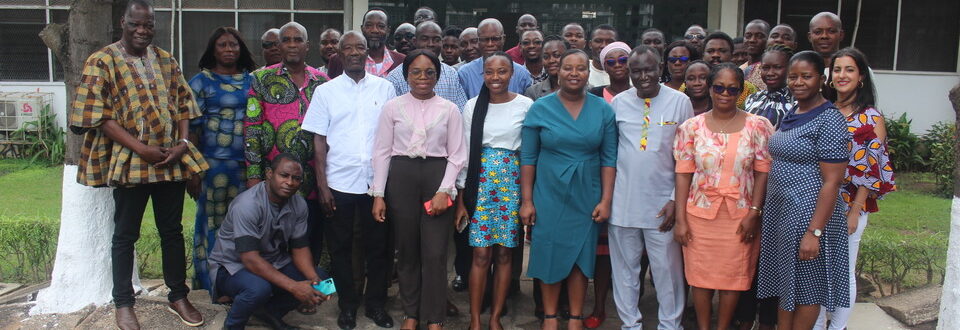The Peasant Farmers Association of Ghana (PFAG), together with non-state actors (NSAs) in the agricultural sector, has called on the government to deepen investment and prioritize agricultural transformation in line with the commitments under the Comprehensive African Agricultural Development Programme (CAADP). This call was made during a workshop organized by the association in partnership with SEND Ghana and the Policy, Planning, Monitoring, and Evaluation Directorate of the MOFA with support from OXFAM. The workshop brought together participants from both government and non-government entities, with participation from the Ministry of Food and Agriculture, the private sector, CSOs, academia, and the media. The workshop sought to update NSAs on the Biennial Review (BR) process, Ghana’s performance, and the government’s efforts in achieving the commitments under the Malabo Declaration. It also provided a platform for NSAs in Ghana to learn more about NSA structures at the sub-regional and continental level and collectively develop strategies for effective engagement with the government to ensure compliance with commitments under the CAADP. The NSAs were reminded of the significant role they played in the agriculture sector through policy dialogue and advocacy, policy reforms, accountability, monitoring, and evaluation, among others. A round of presentations was made to keep participants on par with progress made at the national, regional, and continental levels in achieving the commitments under the CAADP. A member of the CAADP Focal Desk at MoFA, Mr. Faisal Muntaka, provided an insight into the biennial review report and the performance of the country over the years. He emphasized that Ghana has made strides in meeting the CAADP commitments, where the country was not on track in 2017 but picked up in 2019 and is currently progressing well under the 2021 report. The Ministry, according to him, had submitted data for the 2023 round and was awaiting the results to be released by the AU. Although the country has made significant progress on the CAADP, there are notable challenges, such as the non-availability of current data for analysis and reporting and the lack of adequate government investment. The participants were also briefed on the efforts made at the ECOWAS and continental levels by Non-State Actors in the CAADP mutual accountability framework. During a presentation by Madam Constance Okeke, from Action Aid, Nigeria, she highlighted the formation of the CAADP Non-State Actors Group (CNG), a coalition of NSAs across the continent. She added that the group, through its enormous efforts, has been brought into the limelight, thus attracting recognition from the African Union (AU), international NGOs, and other agriculture and livelihood organizations. A call was then put out for more stakeholders to join the group and for the need to amplify and present one voice in the various countries and the continent at large. At the regional level, NSAs are recognized as ECOWAS Non-State Actos (ECONSA) with the objective of promoting awareness creation of the CAADP at the country level while advocating for policy reforms for effective program implementation. During the presentation, Mr. Henry Roberts of Liberia, the current Chairperson of ECONSA, highlighted the current state of the coalition vis-à-vis its formal and legal establishment, the completion of bye-laws, and current membership, among others. Even though efforts have been made at the regional level, the activities of NSAs have been hampered due to the failure to establish inclusive national coalitions and limited private sector involvement, among others. At the national level, the Head of Programs and Advocacy at the Peasant Farmers Association of Ghana, Mr. Bismark Owusu Nortey, admonished the NSAs to spearhead efforts to push the government to invest in agricultural transformation and meet commitments under the CAADP principles. He led participants to draft strategies to build a formidable NSA platform to strengthen engagements at the national level to catch up with efforts made at the regional and continental levels.


leave a comment
You must be logged in to post a comment.